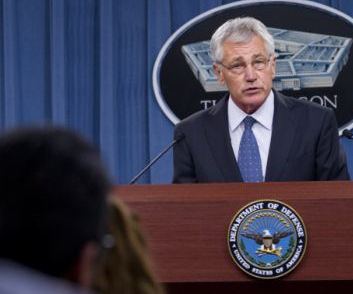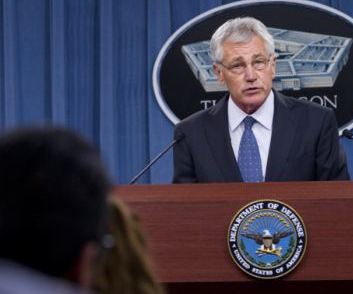Mike Abrashoff, former Navy and now Founder of GLS Worldwide, opened up yesterday’s conference festivities with some serious shock and awe. Mike is one of those people that when he speaks you capture a lot of profound quotes. His message on leadership was right on point and one of the best I have heard.
His book was sold out before his speech was over if that is any indication of how good he was at the podium.
Like any conference of this type, where you have volunteer presenters, you can always end up with a few duds. I ended up with one where a guy from the EPA was presenting on change management. He had a lot of information and focused his message on writing a change plan, because that solves everything in change management and completely breaks down resistance to change.
I’m not sure what his experience has been with change in the government, but he really needed to read some of the references that he was throwing up on slides, which he admittedly said he did not know–like John Kotter’s 8-step model and McKinsey’s 7-S model.
Well, everything came out in the wash when he was finished presenting and the session was opened up for Q&A. I was able to stay for three questions that he couldn’t answer, but had to leave when he told the audience he had never heard of the term “burning platform.”
I found day two to have a great deal more downtime than the day before. This allowed me to spend some time working on a couple of special projects. I was so engaged in what I was working on, I missed the lunch keynote speaker, but heard that I didn’t miss much.
Word to the wise for future ASQ Conference attendees; if they still do Flip Sessions, ensure you watch the video before hand.
Basically, they are trying out this new concept called a Flip Session where you have to watch a video presentation before going to the presentation–pre-work. Well, I don’t think anyone at the conference actually understood the concept because I went to one of these sessions yesterday afternoon and no one in the entire room had watched the video to include me.
Everything went downhill from there. There was a guy in the session playing stump the chump, and he was asking questions out of some manual that he had brought. There was also this other guy that would ask questions that few could understand, to include the presenter. It was just going from bad to worse.
Near the end of the hour-long session, the presenter asked how many in the audience had ever used a SIPOC, to which about 80% or more of the hands went up. Then she asked what they used it for and what values it brought–she received lots of good answers. Then she proceeded to do a SIPOC example on the white board. I walked out.
So, there were nuggets of goodness in the conference and opportunities for learning. The networking is always great and I even got some work done. All in all, not a bad day.
Day three is short, with two sessions and then a closing keynote speaker. The exhibitors are gone, since the hall closed at 4 last night and they won’t have a lunch for today. I suspect that the attendance will be much lighter today, but will report on my nonstatistical hypothesis tomorrow.

 I am absolutely sick of the news today. Being a retired Air Force member, it kills me to see the constant erosion of benefits for retired and current service members. If you haven’t been watching, you better start waking up. The bigger news is the regular lack of a balanced budget from Congress, Sequestration, Government Shut Downs…it seems to go on and on.
I am absolutely sick of the news today. Being a retired Air Force member, it kills me to see the constant erosion of benefits for retired and current service members. If you haven’t been watching, you better start waking up. The bigger news is the regular lack of a balanced budget from Congress, Sequestration, Government Shut Downs…it seems to go on and on.